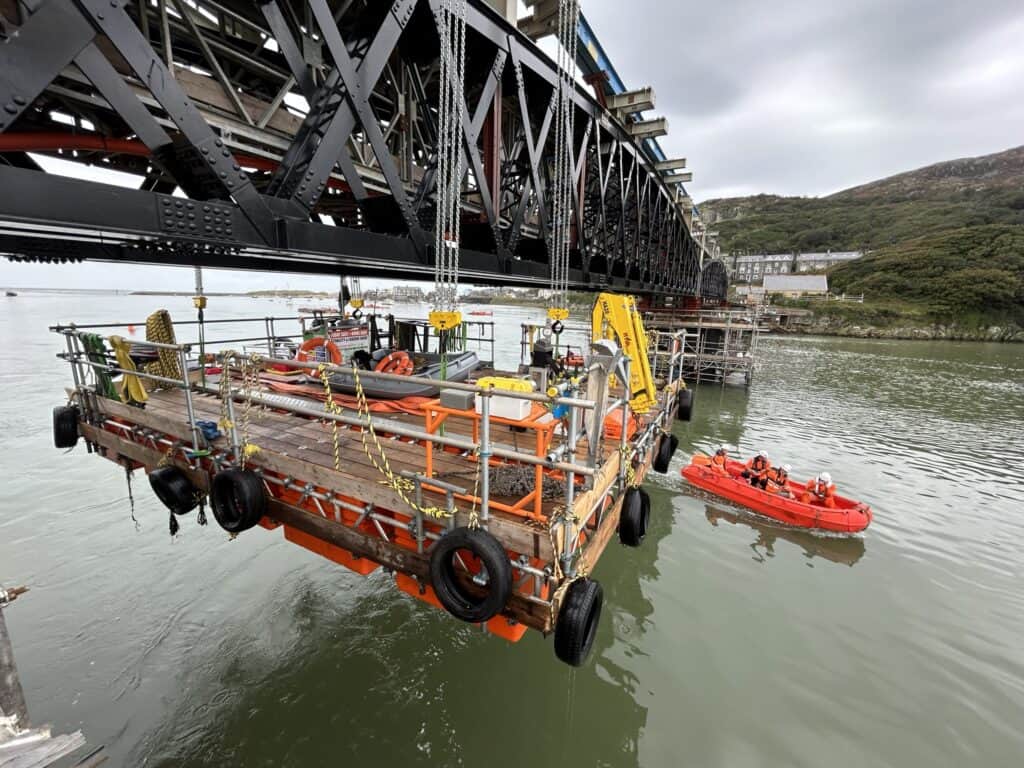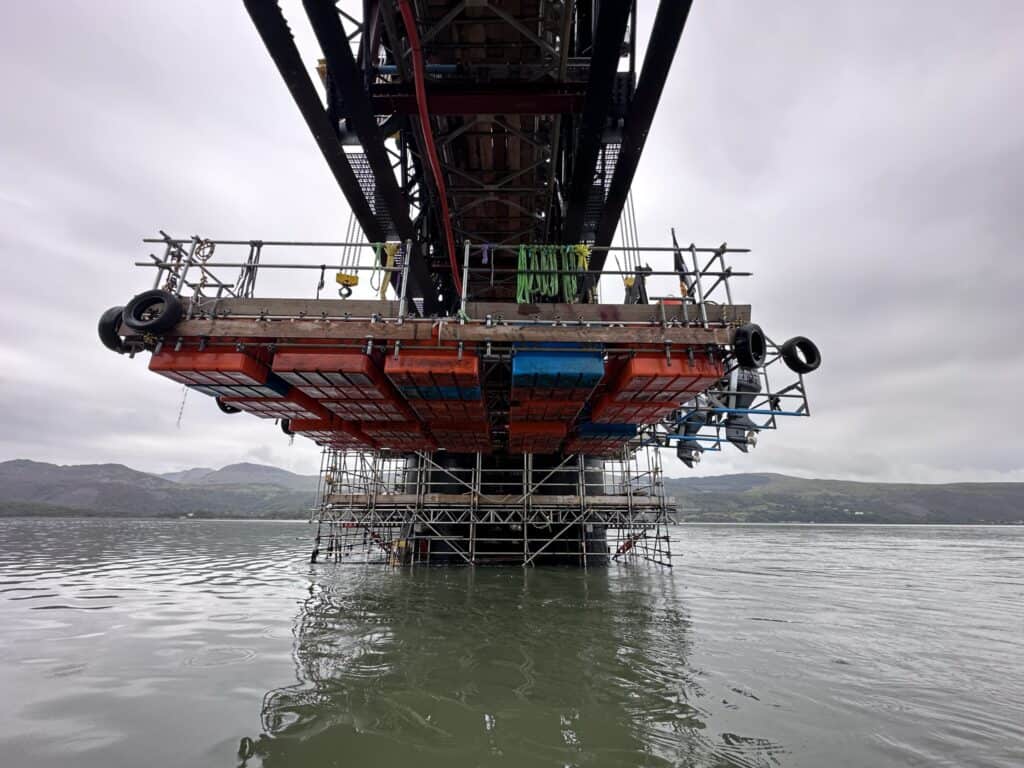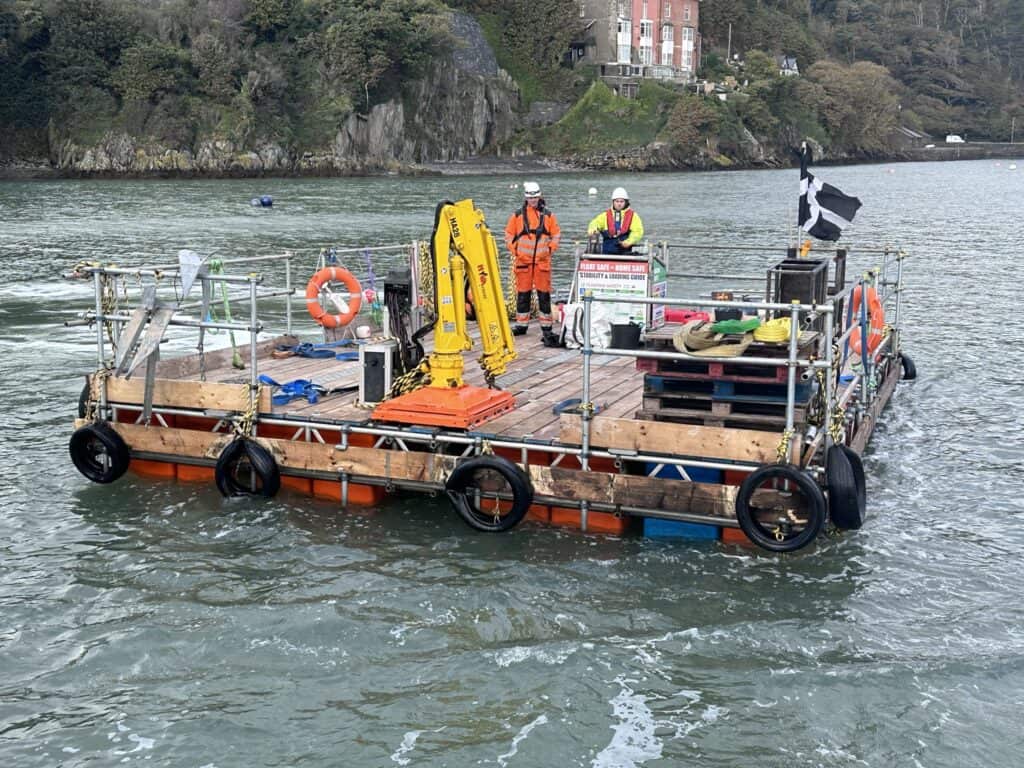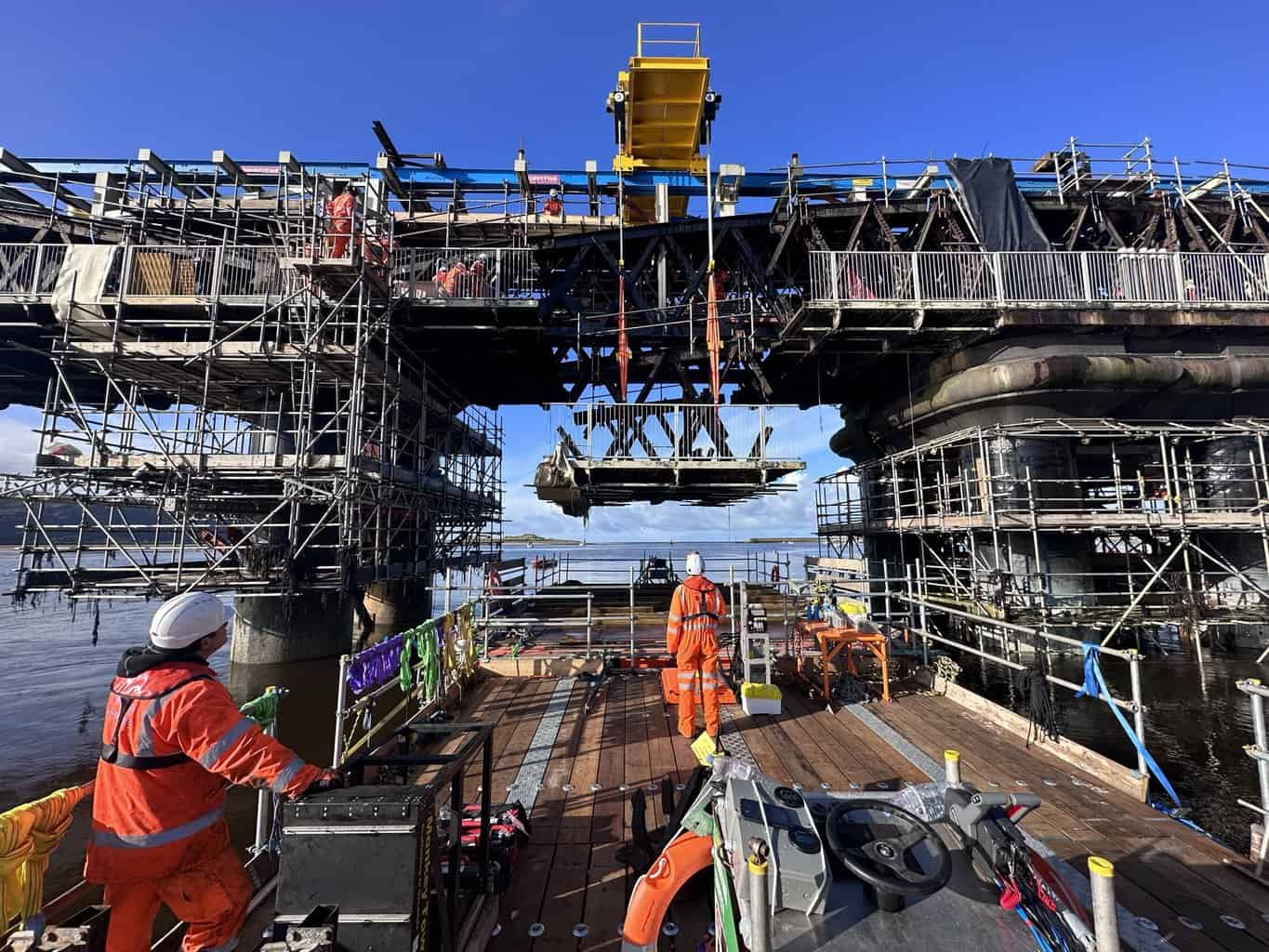In an impressive demonstration of engineering innovation, the Cornwall-based startup ScaffFloat has recently accomplished a groundbreaking project in Barmouth, North Wales.
In collaboration with Pennys Demolition and Alun Griffiths, this effort focused on replacing an old railway bridge for Network Rail across a tidal estuary, demonstrating significant progress in construction methodologies. The operation, marked by its complexity and the hefty weight of 300 tons for the bridge sections, required innovative solutions, and ScaffFloat rose to the occasion.
Central to this project was ScaffFloat’s innovative floating scaffold system, which merges 100% recyclable plastic floats with standard scaffold components to craft pontoons, rafts, and workboats. This inventive solution facilitated the movement of 25-ton bridge sections from the old structure to shore and the installation of new deck sections for the bridge.
For the undertaking, ScaffFloat supplied a complete marine package, including four heavy lift pontoons, two workboats with diverse capabilities, and a fast workboat, all outfitted with features to ensure operational safety and efficiency.


Toby Budd, the Managing Director of ScaffFloat, provided insight into the project’s innovation and the collaborative effort required for its success. He noted the integration of their floating scaffold system into the construction process, which allowed for the efficient and safe relocation of bridge sections across the estuary.
ScaffFloat’s expertise in navigating logistical and environmental challenges was evident throughout the demolition and installation phases. The team’s precision and flexibility were vital in managing the complexities presented by the tidal estuary. “The team’s ability to adapt and accurately execute the project plans under varying conditions was critical to overcoming the challenges faced,” Budd mentioned in his reflections on the project.
Budd also addressed the difficulties encountered, particularly the unpredictable weather and the constraints imposed by the tide. “One of the most significant challenges was aligning our operations with the tide and weather, demanding accurate timing and adaptability from our team,” he elaborated.

Moreover, Budd highlighted the project’s commitment to safety and risk management. He underscored that while there was a solid drive to complete the project, ensuring safety was never compromised. This balance between innovation, teamwork, and safety protocols was instrumental in the project’s completion.
The reopening of the railway line and the subsequent operation of a train on December 8 stand as proud achievements for Budd and his team. “The successful conclusion of the project and its contribution to North Wales’ infrastructure are sources of immense satisfaction,” Budd shared.
The completion of the Barmouth bridge replacement project by ScaffFloat showcases the company’s innovative approach to construction. It establishes a new benchmark for addressing engineering challenges in marine environments, highlighting the transformative potential of floating scaffold technology in modern construction practices.


